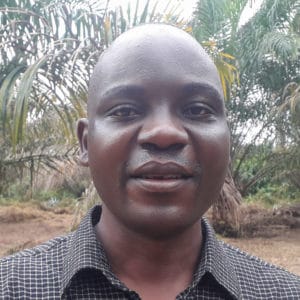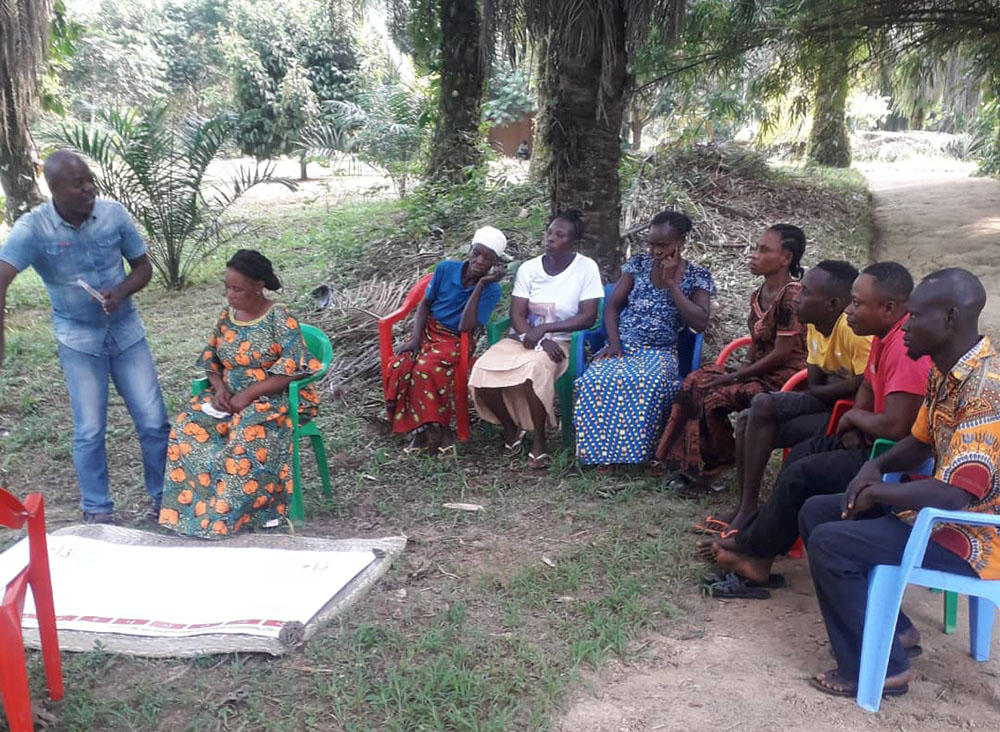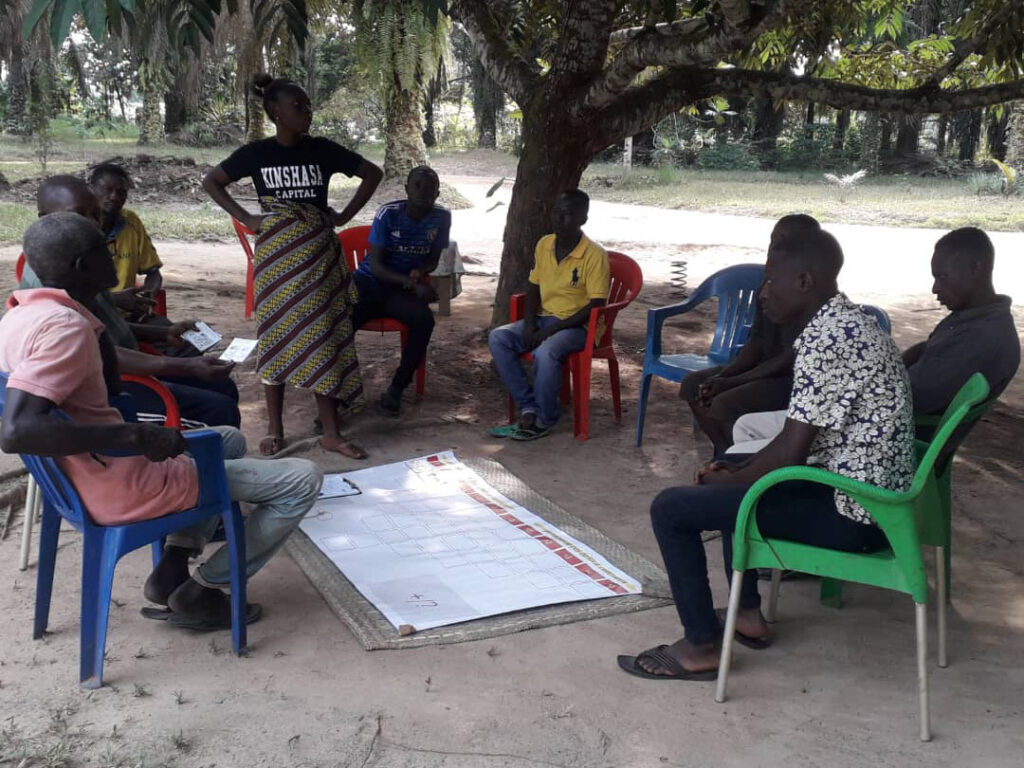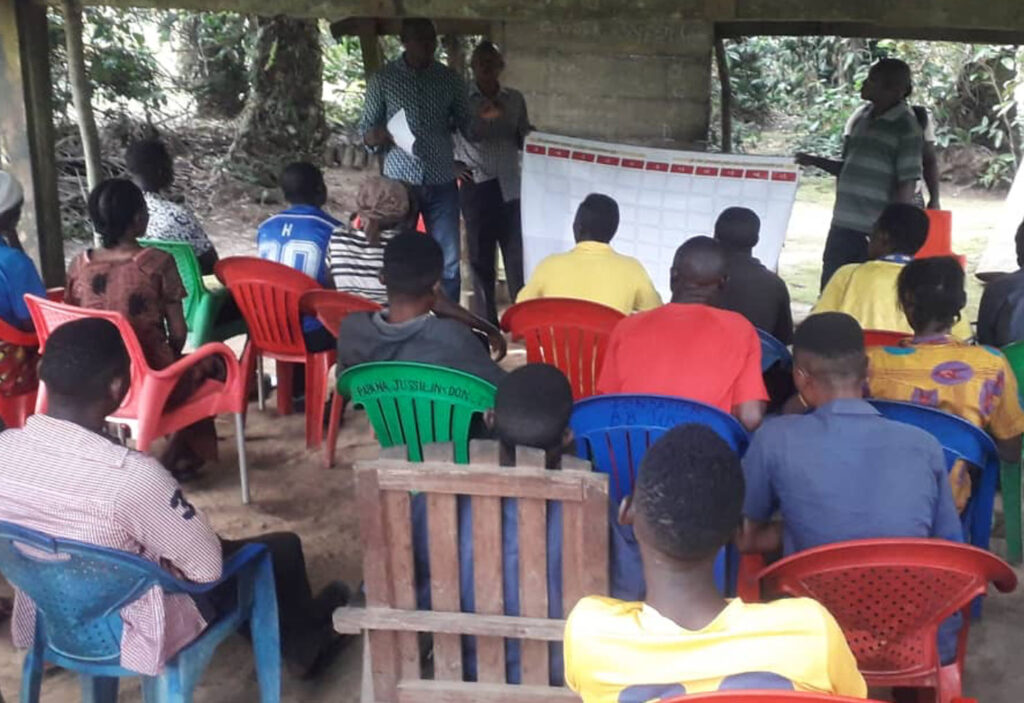Mr. Joseph Zambo began his professional career at the Botanical and Zoological Gardens of Kinshasa before becoming a technical advisor for the Forest Working Group (GTF), an environmentally focused civil society group. He then worked as a technical assistant to the president of the Commission for Dense Humid Forest in Central Africa (CEFDHAC).
Joseph’s passion for forest issues led him to begin volunteering for the Congolese National REDD+ Coordination (CN-REDD), working to create socio-environmental standards for REDD+ around the Reservation for the Biosphere of Luki in Kongo Central. Following this work, he was appointed to the position of REDD+ Focal Point for Équateur province.
When Projet Équateur began in 2013, Joseph was instrumental in the daily operations of the project, working as the technical assistant in charge of communication and monitoring evaluation.





